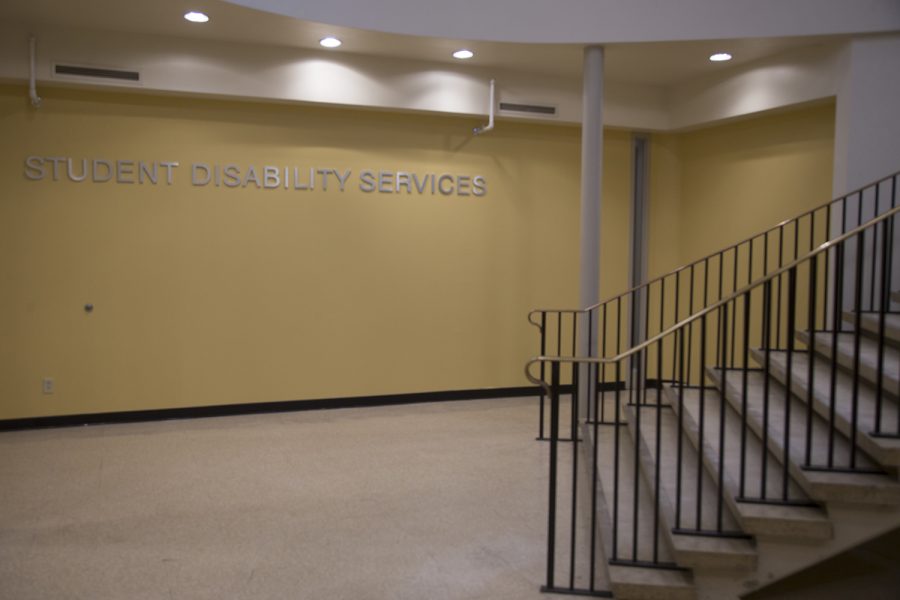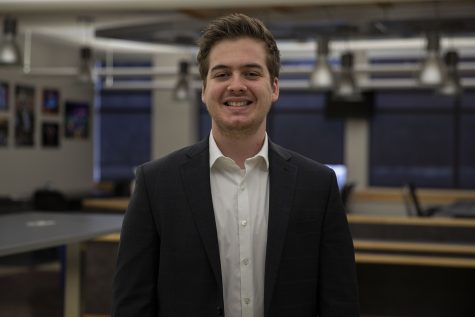UI announces alternative learning arrangements for high-risk students
Students who are at high risk for COVID-19 can apply for temporary alternative learning arrangements through Student Disability Services.
The outside of the UI Student Disability Services office is seen on Wednesday, June 5, 2019. The office is located in the basement of Burge Residence Hall.
July 24, 2020
University of Iowa students who are vulnerable or at a high risk for severe COVID-19 symptoms can apply for temporary alternative learning arrangements for their fall semester classes.
The application, through UI Student Disability Services, is open to students who are at a high risk for COVID-19 or who live with someone who is vulnerable, according to a campus-wide email sent Friday.
After their request is approved, students will need to select from a list of alternative learning options. The SDS website lists remote learning, adjusted class schedule, additional protective equipment, and removing or modifying less critical course content as some of the options for students who are approved for alternative learning arrangements.
Remote learning may not be an option for every course, UI Assistant Director of Media Relations Hayley Bruce said.
“The type of Temporary Alternative Learning Arrangement will vary for each student depending on the details of their class schedule and specific needs,” she said in an email to The Daily Iowan. “Though the university is working to make remote learning an option for as many courses as possible, there may be some scenarios in which a student may have to adjust their class schedule to meet their needs.”
The email says the university will use guidelines from the Centers for Disease Control and Prevention to determine who may be at risk. The CDC lists cancer, immunocompromised status, chronic kidney disease, obesity, and type 2 diabetes as some of the conditions that make someone vulnerable to COVID-19. Older adults are also at risk.
Professors and instructors can’t ask about a student’s diagnosis or health status, the SDS website says, but they may ask about how they can assist students who qualify for alternative arrangements.















